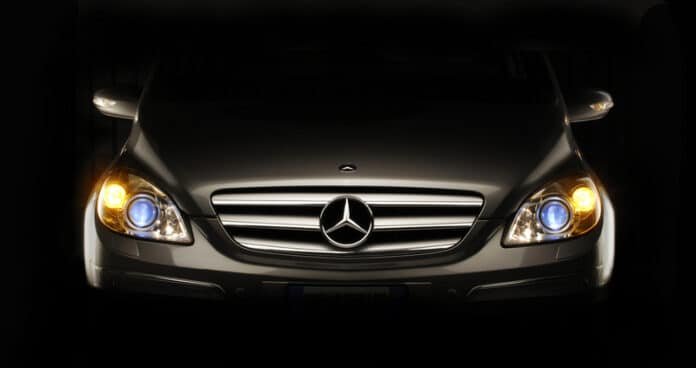A group of 24 Korean owners of the Mercedes-Benz EQE electric vehicle has filed a class action lawsuit against Mercedes and several related parties. This action follows a fire incident that occurred in August at an underground parking facility in Incheon, raising serious concerns about the vehicle’s safety and the company’s transparency regarding its battery specifications.
The lawsuit, submitted to the Seoul Central District Court, claims that Mercedes engaged in deceptive practices by misrepresenting the type of batteries installed in the EQE, resulting in both emotional distress and financial losses for the plaintiffs. Attorney Ha Jong-sun, representing the group, said he is pursuing damages from seven entities, including Mercedes-Benz’s Germany, Mercedes-Benz Korea, Han Sung Motor, and two leasing companies, one of which is Mercedes-Benz Financial Services Korea. The initial claim seeks 10 million won (6,700 euros) from each plaintiff, with the possibility of increasing this amount following the findings of the Fair Trade Commission’s investigation into the alleged false advertising by the automaker.
The plaintiffs argue that many of the EQE vehicles involved in the fire were equipped with batteries produced by Farasis, a Chinese manufacturer, rather than the CATL batteries that Mercedes-Benz advertised. In a prior interview in 2022, Christoph Starzynski, the former vice president of car engineering at Mercedes-Benz, confirmed that “CATL batteries are installed in the EQE,” which the plaintiffs contend misled consumers about a vital aspect of their purchase.
Attorney Ha provided further details regarding the consequences of this misrepresentation, indicating that the damages incurred by each plaintiff as a result of this false advertising totaled 70 million won, which reflects the expense associated with replacing the faulty battery pack. He highlighted that Mercedes had knowledge of the battery issues, particularly after the Incheon fire, yet failed to initiate a recall or disclose the associated risks. The company deliberately concealed the defects of the Farasis batteries.
According to the plaintiffs, the Farasis batteries possess a high energy density that significantly raises the risk of thermal runaway, yet Mercedes-Benz did not implement adequate design measures or safety features to mitigate these risks. Under the Motor Vehicle Management Act, manufacturers are liable for up to five times the damages incurred when they conceal defects leading to severe harm. Attorney Ha asserted that punitive damages could reach 350 million won, calculated as five times the replacement cost of each battery pack.
This lawsuit not only highlights the potential safety risks associated with electric vehicles but also raises critical questions regarding the ethical responsibilities of automakers in disclosing accurate information about their products. As the case progresses, it could set an important precedent for consumer rights and corporate accountability in the automotive industry, particularly in the growing electric vehicle market. The outcome may significantly influence the landscape of electric vehicle safety standards and the expectations of consumers regarding transparency and integrity from major manufacturers.




